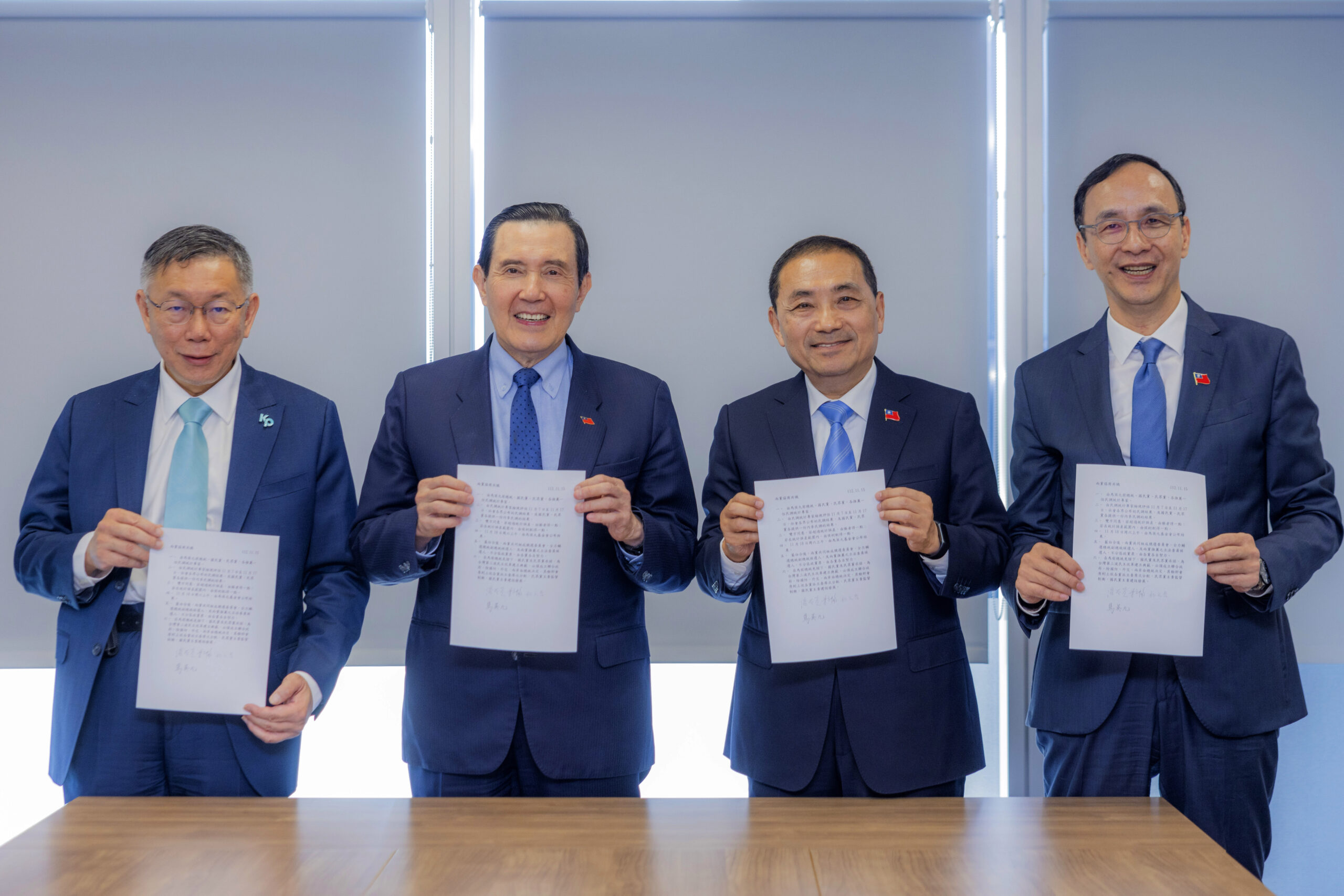TAIPEI, Taiwan (AP) — Taiwan’s two main opposition parties have failed to agree on a joint candidate for president, once again throwing into doubt their ability to unseat the ruling party in January’s election.
The Nationalist Party and the Taiwan People’s Party were expected to announce an agreed-upon candidate Saturday at a news conference. Instead, they announced a need for further consultations after a disagreement over how to use polling data to make the selection.
With the candidates for both parties trailing in the polls, they had agreed three days ago to form a combined ticket with one candidate for president and the other for vice president. The decision on who would get the presidential nod — Hou Yu-ih of the Nationalist Party or Ko Wen-je of the Taiwan People’s Party — was to be based on a combination of public and internal party polls.
The failure to agree on a joint candidate leaves current Vice President William Lai of the Democratic Progressive Party as the frontrunner. He is running to succeed President Tsai Ing-wen, who must step down after eight years because of a two-term limit on the presidency.
A fourth candidate, Terry Gou, the billionaire founder of tech giant Foxconn, has thrown his hat in the ring as well.
It was unclear whether the two opposition parties would be able to sort out their differences by next Friday, the deadline for candidates to register for the race.
At stake in the election is Taiwan’s relations with China, which says that the self-governing island must come under its control, and with the United States which is bound by its own laws to provide Taiwan with the weapons it needs to defend itself. Differences over Taiwan are a major flashpoint in US-China relations.
The Democratic Progressive Party favored closer ties with the United States as a way to preserve Taiwan’s separate status from China. The Nationalists said that friendlier ties with China were a better approach, and the Taiwan People’s Party, a relative newcomer to the political scene, also leaned toward talks with China.
Tsai’s hardline approach angered China, which has responded with threatening military drills in the seas and skies around Taiwan. The US, in turn, countered by pledging support for Taiwan and maintaining arms sales to its military, further angering China.
The way that this race has really played out is the presidential candidates trying to sell to Taiwanese voters who will be the safest president, who can ensure Taiwan’s safety and ensure that … we do not head (in a) direction towards war,” said Lev Nachman, an assistant professor at National Chengchi University in Taipei, the capital of Taiwan.
The agreement to form a joint ticket was brokered by former President Ma Ying-jeou, a Nationalist who led Taiwan just before Tsai and improved relations with China during his tenure.







